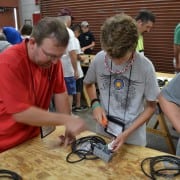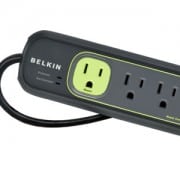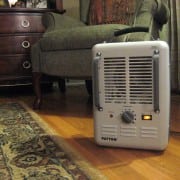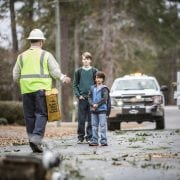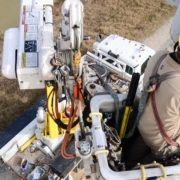Electrical safety lessons for kids
We all know electricity plays a major role in our everyday lives, and it is a powerful resource that should be respected. Unfortunately, our children often do not understand the dangers of electricity. Tennessee’s electric cooperatives encourage you to share electrical safety tips and lessons with your little ones as often as possible. We also understand their attention spans run short, so here are a few creative ways to get them involved.
Depending on the age of your child, consider designating an “electronics deputy.” The deputy should be responsible for pointing out electronics in your home that are not in use and keeping appliances safe from liquids. Reward your deputy for pointing out overloaded outlets or other potentially dangerous situations.
Emphasize the importance of fire prevention with your children, and create a family fire drill plan as an extra precaution. Incentivize your children by rewarding those who followed the plan and made it safely out of the home.
While it is fun and engaging to turn safety into a game, it is important to ensure your children understand the risks they are facing if they do not practice electrical safety.
One of the most important safety tips you can give your kids is to avoid any downed power lines. In fact, it is best to avoid power lines, transformers and substations in general. A downed power line can still be energized, and it can also energize other objects, including fences and trees. Make sure your kids understand the potential dangers of coming in contact with a downed power line or low hanging wire. And, if they encounter a downed power line, ask them to tell you or another adult to call their local electric cooperative.
Here are a few other safety tips you can share with your kids:
- Never put metal objects in outlets or appliances.
- Do not overcrowd electrical outlets.
- Never mix water and electricity.
No matter how you choose to get your kids interested in staying safe around electricity, your local electric cooperative is here to help. To learn more about being everyday safe, visit everydaysafe.org.


